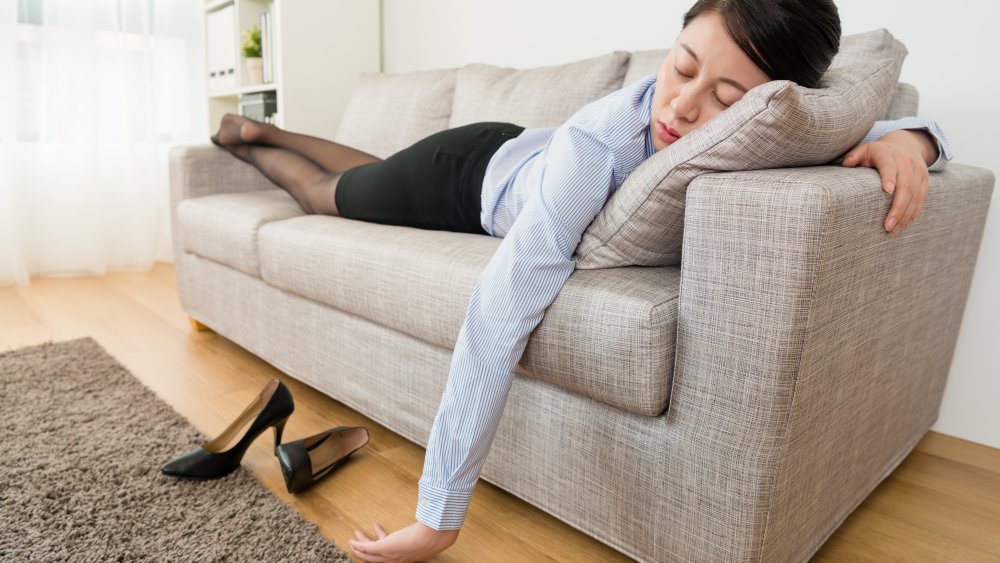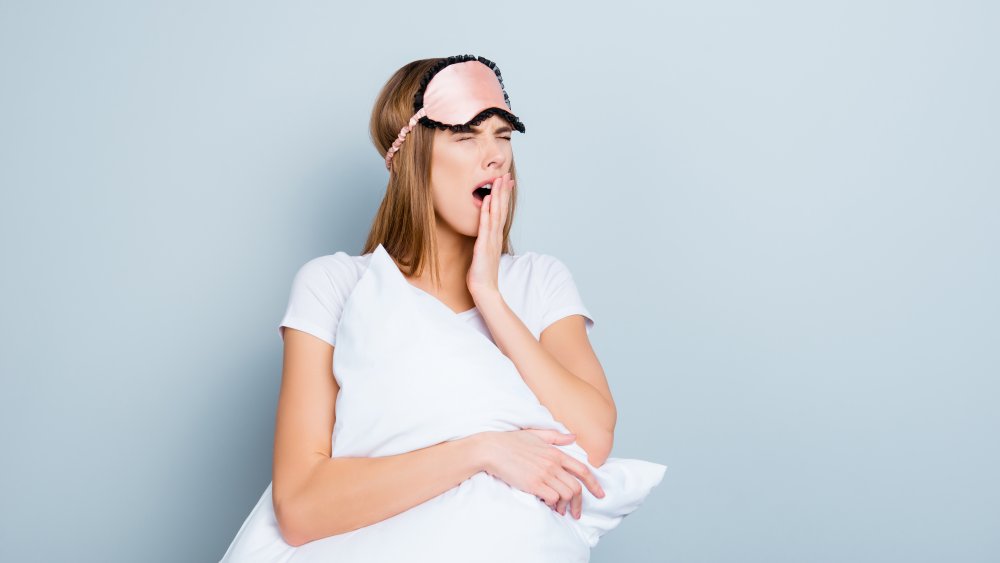Here's How To Take A Nap And Not Ruin Your Night's Sleep
Is there anything more blissful than a long and lazy Sunday nap, preferably enjoyed after a big brunch that included a mimosa or two? Except, you'll likely be hit with a severe case of napper's remorse hours later when you're tossing and turning in bed — or the following morning, when there's not enough coffee in the world to power you through your day. Indeed, a study published in the Journal of the American Geriatrics Society found that while people who napped between 30 and 90 minutes had better cognition than non-nappers, those who slept for more than 90 minutes had memory issues that likely were due to poor nighttime sleep, said study co-author Charlene Gamaldo, M.D., medical director of the Johns Hopkins Sleep Disorders Center.
"I consider napping to be a good thing, but it needs to be taken in the context of the person and his or her own sleep cycles and body," Gamaldo explained. "You might want to think about limiting your napping if you're having problems with insomnia, or it's taking you more than 30 minutes to fall asleep at bedtime." So how do you make sure your naps are the kind that make you feel smarter and more refreshed — and not sleepless and groggy? It's all about timing.
Timing is everything when it comes to napping
Because of our body's natural clocks, called our circadian rhythm, we're most likely to want to nap between 1 p.m. and 3 p.m. — and that's exactly when we should nap (per Verywell Health). And, make it a quickie. "If you take it longer than 30 minutes, you end up in deep sleep," sleep expert Michael Breus, Ph.D., explained to HuffPost. Have you ever taken a nap and felt worse when you woke up? That's what's happening — you're sleeping too long and you're going into a stage of sleep that's very difficult to get out of."
So, say it's between 1 p.m. and 3 p.m. What if calling out, "Ready, set, nap!" isn't putting you in the mood to snooze? Here's how to power nap like a pro, according to Self. First, block out the daylight and ambient sounds with an eye mask and a white noise machine, then lie down. Set an alarm to wake you up in a half hour — and once you're up, splash some cold water on your face or go outside into the bright light. To make the nap even more efficient, drink a cup of coffee immediately before you sleep; since your body takes about a half hour to process caffeine, you'll feel bright-eyed and bushy-tailed as soon as you awaken (via the CDC).

